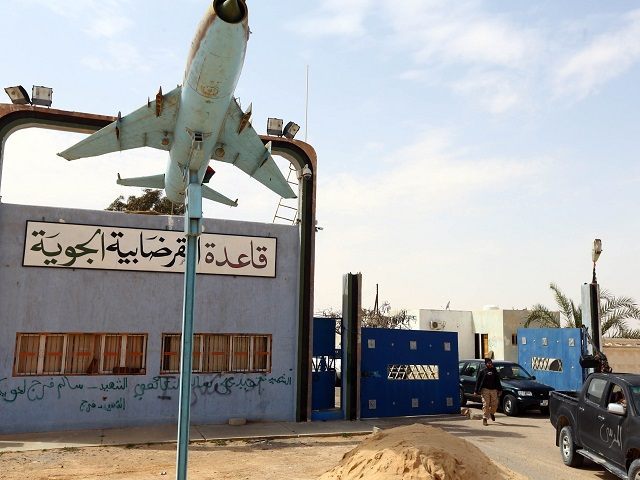The Islamic State (IS) terror group has been able to hold territory in both Iraq and Syria for some time, turning from a mere terrorist organization into a full-blown insurgency.
But what is lesser known about IS is that the group also continues to dominate the city of Sirte, a major Mediterranean Sea coastal town in Libya.
Described as a “fallback option” and “contingency planning” for IS by the New York Times, Sirte’s radical leadership continues to implement the extremist group’s fringe policies, beheading innocents in a public square and banning music, a policy shared by the terror state in Iran.
The local radio station broadcasts pro-IS propaganda and discusses the greatness of its caliph, Abu Bakr Al Baghdadi, according to the report.
The city was overtaken by the Islamic State in February 2014, and has helped the group generate significant revenue through oil sales. Some 5,000 fighters who pledged allegiance to IS now rule over the city, which sits in a country that has been disassembled by war and poverty.
Sirte, a strategically important city, is now utilized as a base of attacks against targets in Libya, and in neighboring Tunisia and Egypt. Moreover, Italy and Greece remain just across the Mediterranean Sea from the coastal city.
“The entire Islamic State government there is from abroad — they are the ones who are calling the shots,” Nuri al-Mangoush, a local head of a tracking company, told the New York Times.
“Libya is the affiliate that we’re most worried about,” remarked Patrick Prior, a former top DIA official, at recent D.C. counterterror conference, the report says. “It’s the hub from which they project across all of North Africa.”
And the Islamic State continues to extend its reach in Libya, now controlling 150 miles of Mediterranean coastline territory, the report stated.
IS in Libya is led by some of the group’s leaders from Syria and Iraq. “A great exodus of the Islamic State leadership in Syria and Iraq is now establishing itself in Libya,” said Omar Adam, a local militia commander.
The country, previously ruled by Libyan dictator Muammar Qaddafi, was destabilized after a U.S.-led air campaign four years ago. Two warring factions continue to wage battles throughout the country, with an Islamist faction squaring off with a more secular entity. Amidst the civil strife, the IS affiliate has been allowed to grow relatively unchecked.

COMMENTS
Please let us know if you're having issues with commenting.